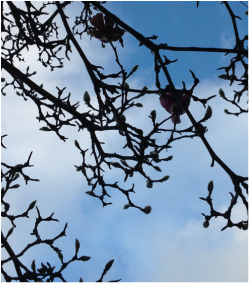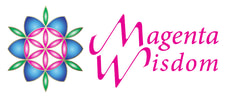 I have been teaching systems thinking as an approach to deal with complexity for many years. Complexity has become a catch word, something that is recognized as a part of modern life, something that should not be ignored or simplified. We have too many examples of reductionist approaches that tried to solve a problem through a technological (quick) fix to only find out that the solution had “side effects” that made the problem worse or created new problems. So acknowledging and even embracing complexity has been, in my opinion, a step in the right direction. However, there is still a sense of struggle… and a tendency to try to understand or at least make some sense of the complexity before we can “deal” with it. From a systems science perspective, there is a fascination with complexity models. All this is good and useful. However, I can’t but come back to my daily experience to reflect: What does “dealing with complexity” mean to me? Do I spend hours drawing complex models to understand the feedback loops of the mess in my life? Am I rigorous in the way I compare and contrast choices before making a decision? Not really. But something I do in a conscious way, is to trust my intuition. Intuition… that elusive way of knowing that is deeply embedded in our human ways, yet, systematically rejected and silenced. What if I don’t need to fully understand it all for me to move forward? What if my heart knows what’s best or what’s coming even if my brain cannot grasp it? What if my dream, the synchronistic encounter on the street, or the thought that seemed to come out of nowhere are sources of information as valuable as my overrated analytic capacities? And then, there is the emotional side of things. Yes, I’m (very) emotional. So even in my most sophisticated intellectual mode, I’m all feelings. This sensitivity has become an important compass for me. Rather than trying to keep it under control (good luck preventing my tears to come out if I feel like crying) I have decided to embrace it as the core of my way of knowing. It makes me more vulnerable, but also more authentic, or simply, more human. And this way of being more me is rooted in my being a woman. Even though I talk a lot about the importance of bringing back the feminine into our culture, what I'm really and deeply committed to do is to bring back our whole humanity. It just happens that the feminine side of things has been the one oppressed over centuries. As human beings, we are so complex: our biology, our culture, our history, our institutions, our personal experiences... there are so many entangled layers that inform who we are and why we show up (or not) in certain ways. I believe that the challenges that we face in organizations and communities cannot be fully understood by one single lens, by one simple, or worse, illusionary superior perspective. The gender lens is an important one, one that has been ignored for a long time, and therefore, one that deserves attention. But we need to work on the whole of the situation at once. And for me, the only way to do that is to focus on our humanity: What does it mean to be authentic and true to ourselves? What would it take for us to feel safe to express anything and everything that is in our hearts and minds? What would it take for us to see each other in our diversity while recognizing that we are deeply connected and that we all want to be loved and accepted? What if this radical acceptance of our uniqueness is a practice to heal ourselves and our world? I believe that only whole, healthy, fully human beings can create a good society. Complexity in nature is beautiful. We don’t need to “deal” with it. We can appreciate it, marvel at it, learn from it, work with it. It is only when we seek to control that complexity becomes a problem. And when complexity is a problem, it becomes exhausting and overwhelmingly hard work. I’m tired of that. What if complexity was welcomed with grace? Can we begin with some self-compassion and acknowledge our own complexity as people? with humility? with an understanding that we can never fully "deal" with anything but only attempt to make some meaning and take another step? I’m writing this piece as I prepare to celebrate my daughter’s 15th birthday. Becoming a mother has been the most transformative experience of my life. There is no question that having a child adds complexity to life! There is no book, no course, no advice that can prepare you for the task of caring for that new human life. But the challenge gets rightfully compensated with immense joy. My daughter has grown to become a highly reflexive teen… that’s what happens when a child gets systems thinkers as parents. She is keenly aware of the complexity of the world, or more accurately, of the mess we (adults) have created. And with youthful eyes, she questions: How did we forget that fun and laughter are really important? that we are all equal? that healthy food and clean air are more important than money? In her view, complexity is unnecessary complicatedness in human-created systems gone wacky. In my relationship with her, I’m keenly aware of how everything I do – or don’t – and everything I say – or don’t – contributes to the shaping of her consciousness as a young woman. Having grown in a traditional society with clearly delineated gender roles, I sometimes find myself in unknown territory when in my forties I begin to define who I truly am without cultural constrains. And although I consider myself a feminist and an advocate for equality, I also accept the distinct feminine essence of my being. So I’m going to try to deal with complexity with grace. I’m going to recognize that responding to my colleagues e-mails is as important as cooking a wholesome meal. I’m going to come back to gratefulness for the amazing blessings and incredible privilege that I have in my life every time I feel like it is too much. I’m going to take the time to smell the flowers, to love, and to create beauty every day. Because life is too precious and we miss its mystery when we think and worry too much. Even without understanding it all, even without feeling on top of it all, if I can feel peace and joy in my heart, then I know that I can dance gracefully with the complexity of the world.
2 Comments
|
AuthorKathia Castro Laszlo, Ph.D. Archives
September 2014
Categories
All
|

 RSS Feed
RSS Feed